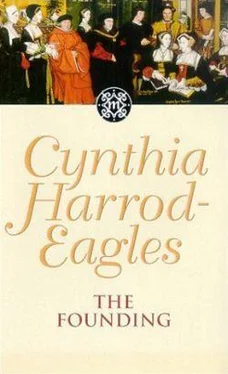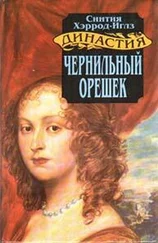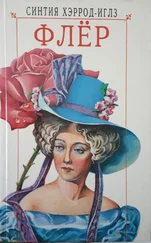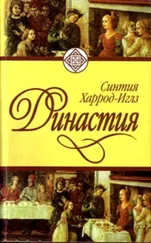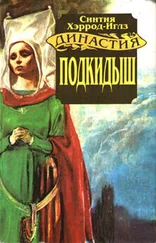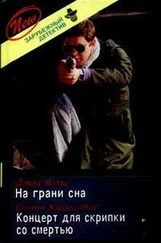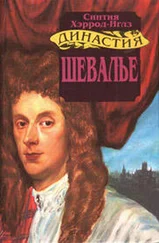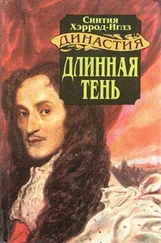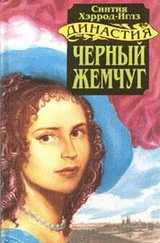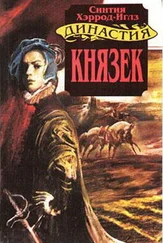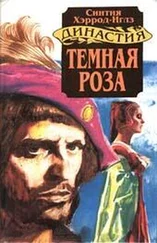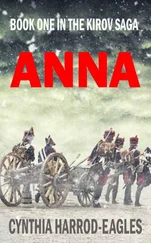As they entered the hall, Eleanor looked around her and was pleased and touched at how much effort had been made to make all fine for her feast. She glanced at the man beside her: a very young man, with mousy hair and sandy eyelashes and a gentle, shy mouth. He had reminded her at first of a sheep, for her heart had been full of another's image. She loved a square-jawed, soldierly man with a confident smile; a thickset man with the strong neck of a stallion and the broad, muscular shoulders of a swordsman.
How could she find the good in a nervous boy with the mouth of a poet and the body of a dancer?
But now as their eyes met she remembered that this youth to whom she had just been bound for life had brought her a puppy, the best of the litter of his own favourite bitch, as a gift. A little gift, a silly gift beside the valuable bride-gifts that had been unloaded from the packhorse: but he had tried to please her, and so she smiled at him. It was a slight smile, but it was enough for Robert. His heart leapt, and he smiled back at her adoringly, hers from that moment for the rest of his life.
They took their places at the high table, and the rest of the household and all the servants, retainers and tenants took their places at the long tables down the sides of the hall. A trumpet played a fanfare and all fell silent while Lord Edmund pronounced a grace in a ringing voice. Another trumpet, and the pages brought the silver bowls to the table for the guests to wash their hands, and then the butler brought up the mazer, the loving cup, for the ceremonial toasts.
‘To Master Robert and Mistress Eleanor, that their union might be attended by God's blessing, that it may be long and fruitful, and rich in the knowledge of virtue and godliness,' was proposed by Lord Edmund, and Eleanor dropped her eyes, the rich colour rising to her cheeks. She was not used to being the centre of attention. He then toasted the King, and his honoured guest master Edward Morland, and Morland replied with a toast to his hosts. And then the mazer was removed; the priceless nef, in the shape of a jewelled galleon, was placed in the centre of the table from which each man could help himself to spices; and the first course was brought on, to the sound of music.
‘My Lord Edmund, you keep a good table,' Morland cried, his eyes bright with appreciation. 'I should think you have a good cook.'
‘I have, sir,' Lord Edmund replied. 'My uncle the Cardinal got him for me. He was cook to an Alderman in London, and could not be prised away until his master died, so he combines genius with loyalty — two rare qualities, and rarer still in combination. The dishes meet with your approval?’
I should think they might, Eleanor thought scornfully. Venison frumenty, maumene of capons, filetts in galantine, and a roast swan with all its feathers cunningly replaced to represent the living bird; and there were to be another two courses, each of at least four dishes, with subtleties in between. The approval of a barbarian farmer could not be so hard to obtain.
She turned to Robert and asked him in a sharp voice, 'I do not suppose you often have such a dinner, sir? I suppose you do not normally serve above three dishes?’
Robert blushed with shame, and answered without looking at her. No, mistress, I'm afraid we don't. We have an indifferent cook — it is hard to come by a good one.'
‘That's true enough,' Morland said, catching the exchange. 'I have kept my eyes open, but every fair passes and leaves us still lacking.' .
Lord Edmund smiled slightly. 'A good cook is the first essential for any household, and you have my sympathy for all the years you have suffered. But, mistress Eleanor, do not fear, I shall not send you to that same suffering. Jacques, my second cook, has agreed to go with you and serve you in your new household, so you shall eat almost as well in York as you ate in Dorset.’
Eleanor was brought almost to tears by such generosity, for a man's cook was his most essential servant, the highest paid and the most highly prized member of the household. ‘Oh, my lord,' she said, 'how can I thank you enough? It is very, very kind of you.’
Lord Edmund patted her hand and smiled kindly. 'Did you think I'd send you away empty handed? For all that you have no dowry, I shall see that you have full hands to come to your husband, in addition to the blessing of yourself.' And he glanced at Robert, and saw quite clearly from that youth's expression that he thought Eleanor sufficient treasure in herself. However, it was not Robert he designed to please, but his father.
‘I have set aside some furniture for you,' he went on, watching Morland's face out of the corner of his eye, 'and some bales of cloth for your wedding gown and hangings, and you shall take your maid with you too and a groom. It is not fitting that you should have no one to attend you on your journey.’
All this was intended to impress upon Morland how important a wife he had got for his son, but it did not diminish Eleanor's pleasure one whit. She was to go north with three servants of her own, the nucleus of a personal household, and furniture and cloth of her own. This was style indeed; this was better than what she had imagined, than going north as a supplicant, having to be grateful for even her bread at the hands of a man she felt her inferior.
While she smiled her speechless thanks at her master, Morland nodded his approval and said, 'That's right, my lord, that's right. My own servants are pretty rough, though it's good fighting men you need to attend you in Yorkshire and they suit me as they are. But they're not ladies' maids, I can tell you! No, they are men as are men. The house is none too pretty either — it has lacked a woman's insistence on finery all these years, and the maid might find it in need of redding up. But these things can be done, they're not so difficult. And I'll give her a horse of her own when she's wed to make up for it.’
Now Morland was trying to impress upon Lord Edmund that he had no need of a dowry or valuables of any kind with Eleanor; but as long as the two men vied with each other, Eleanor seemed likely to come well out of it, and she smiled her thanks at each with good grace.
At the end of the first course the bowls were brought again for hand washing, and then the first subtlety was brought in — a wonderful sugar confection in the shape of a red deer stag.
‘Animals of the chase,' Lord Edmund said, 'since we are into the season of hunting. Do you hunt much in Yorkshire?'
‘I don't myself,' Morland said, 'but the lad does. There's rare hunting to be had — all kind of birds, deer, hare, boar: you won't lack for hunting there.’
The second course was being brought on now, roast mutton, herring pie, mortrewes, and blandissory, and the music ceased in favour of a young page reading aloud from the Parlement of Fowles.
Eleanor turned to Robert, feeling that an effort was due from her, and asked, for want of a subject, 'What are you thinking about?’
The answer when it came was incomprehensible, for Robert spoke in his own native Yorkshire instead of in the southern speech which he had been carefully taught from childhood. Eleanor stared at him, feeling a sinking of her heart, for she knew that most people would talk like that in her new home, and she would be a stranger in a foreign land, unable even to make herself understood.
‘I cannot understand you,' she said. 'I cannot tell your northern speech.’
Robert muttered an apology, and repeated himself in his careful English. 'I was wondering how you shall like Micklelith.'
‘What is Micklelith?'
‘Where we are going. The house — it's the name of the house. The Mickle Lith is the great gate — the Great South Gate of York. Our house is in sight of it, on the great south road.'
Читать дальше
